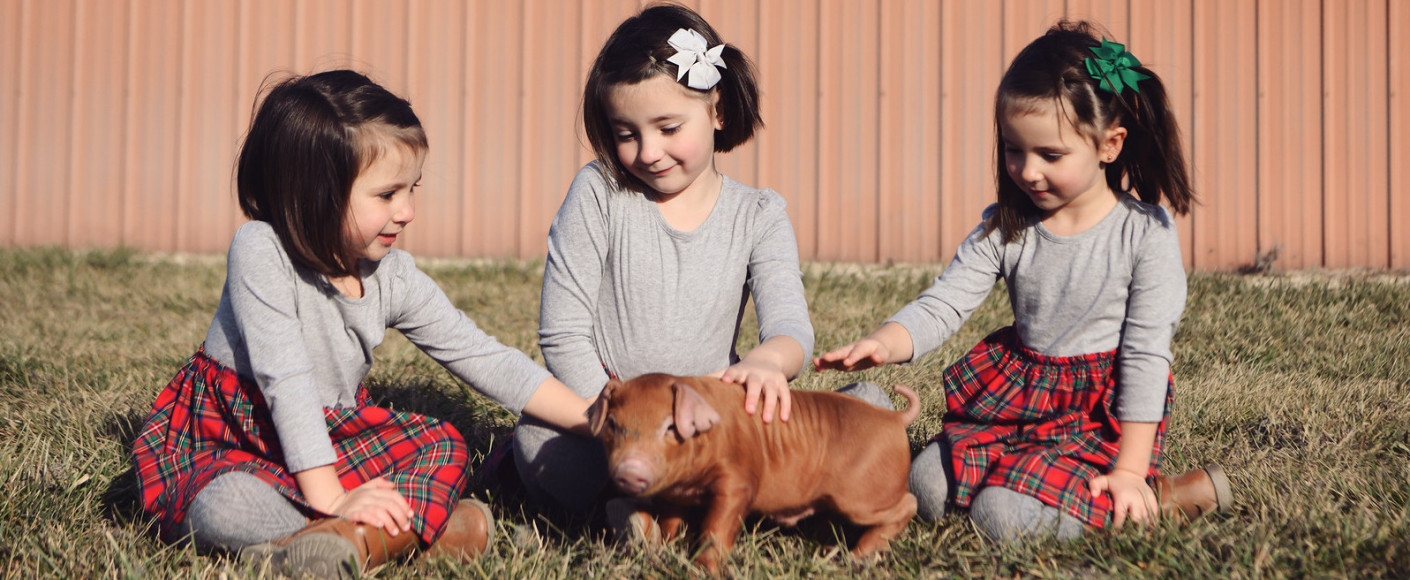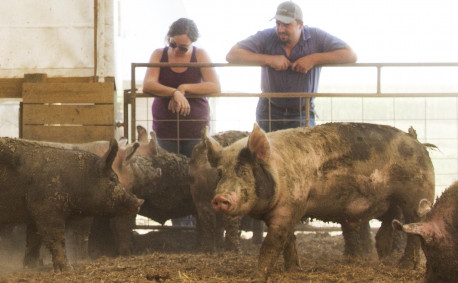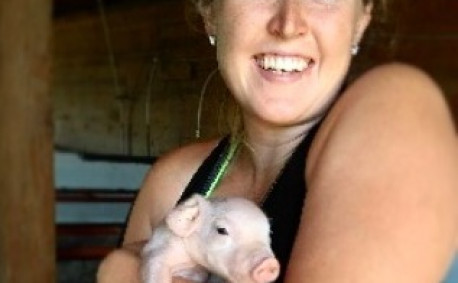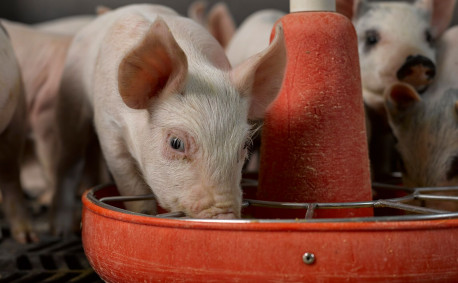The Good Life: Pig Farming in Kansas
When you’re coming up in the world, the guidance of a mentor can be incredibly helpful. Patient, sound advice can not only build your expertise, but also shape your trajectory. Craig and Amy Good had that kind of support from a village of mentors: Craig’s parents, Don and Jane; Amy’s parents, Ray and Eileen; and Fred Germann. Together, they helped launch the couple’s career as pig farmers at Good Farms in Olsburg.
“We couldn’t have done it without parental support,” Craig said. “And, we attribute a lot of what we know to Fred Germann.”
Craig and his wife Amy met at Colby Community College. Craig confessed he was shy and had to work up the courage to ask Amy out. (He did. And she said yes.) From there, they both went to Kansas State University, where they continued to date. They married in 1976, the year Amy graduated, and Craig took a job on Fred’s farm.
“It was a diversified farm and my responsibility was primarily the hog operation,” Craig said.
Craig’s interest in pigs dated back to his early years in 4-H.
“I had pigs and cattle and lambs growing up as a youngster and I just really, really liked pigs,” he said.
During high school, a summer job really sealed the deal.
“I thoroughly enjoyed it and I guess I was hooked on raising pigs,” he said. “I’ve always been struck by what amazing animals pigs are, if they’re managed properly.”
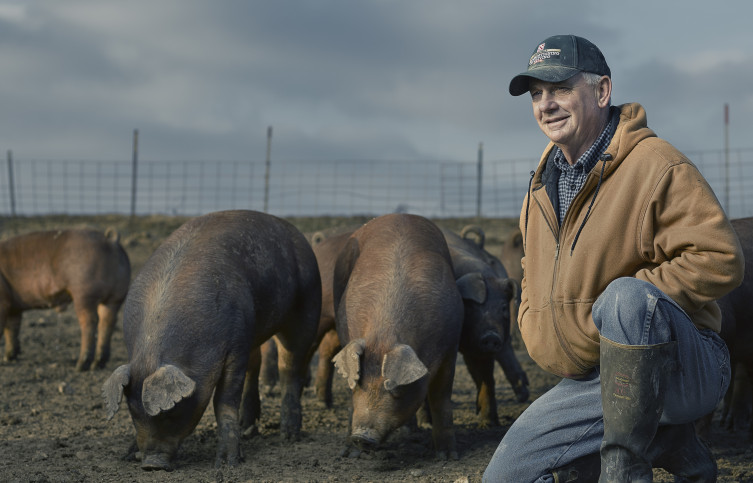 When Craig started working for Fred, he soaked up everything he could. But, as with many young people, the time came when Craig and Amy wanted to start their own operation. Fred saw them off with 10 sows to help them get started.
When Craig started working for Fred, he soaked up everything he could. But, as with many young people, the time came when Craig and Amy wanted to start their own operation. Fred saw them off with 10 sows to help them get started.
“We decided we wanted something of our own,” Craig said.
Craig’s family had a farm in Olsburg with Angus cattle and cropland, which was being run by his father and mother. His parents offered the young couple the opportunity to work some of the land and they decided to start a pig operation from scratch.
“It was challenging, but we were young,” Craig said. “We had a strong desire to make it on our own. It’s a very satisfying lifestyle even though it’s a lot of work and stress sometimes.”
Amy came from a farm family and knew firsthand some of the challenges of farming life.
“This was not a new way of life for me,” she said. “It might have been harder, but some of the struggles we’ve faced were similar to things that happened in my family, so it wasn’t unfamiliar.”
They split the work with Craig focusing on the animals and Amy handling the bookkeeping, household and children.
“Our jobs are different, but we’ve always approached it as a team,” Craig said. “Our ideals and values are so similar that there hasn’t been very much friction.”
“It’s not always easy, but we have a common goal,” Amy added.
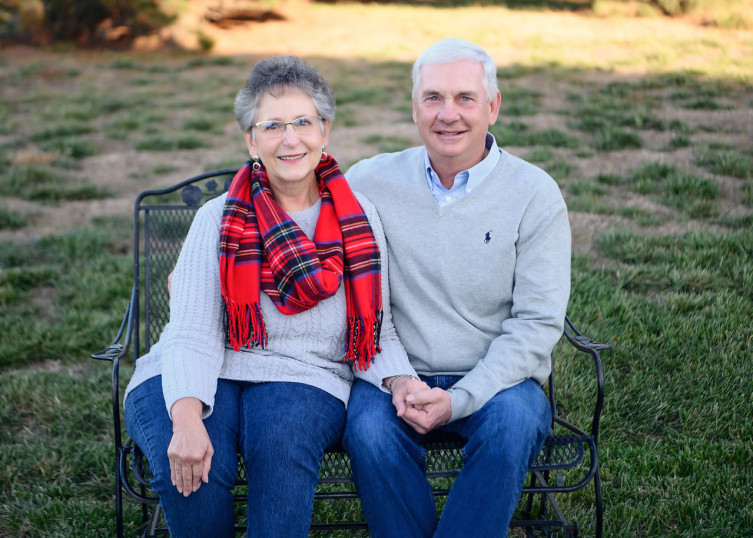 Craig and Amy started off raising breeding stock. They sold boars (intact males) and gilts (females who had not given birth) to other farmers looking to enhance the quality of their pigs.
Craig and Amy started off raising breeding stock. They sold boars (intact males) and gilts (females who had not given birth) to other farmers looking to enhance the quality of their pigs.
(Farmers often talk about improving the “genetic material” of their animals. By selecting livestock for traits like weight, fat content and marbling, they can enhance the quality of the meat they produce. Reputable farmers are known for raising high-quality animals.)
“We did a lot of performance testing,” Craig said. “We were very conscious that if we’re going to sell breeding stock, we had to have the highest level of health we could. Health is extremely important and people needed to have confidence that our animals’ health was at a very high level before they made a purchase.”
To guarantee the health of their animals, Craig and Amy took the sows from Fred to a lab specializing in Caesarean animal births. The science behind this approach is that a sow delivering via Caesarean section in a sterile environment will not transmute any pathogens to her offspring. The next generation starts off with a clean bill of health.
“It breaks the disease cycle,” Craig explained. “That was our way of ensuring that we started with very clean pigs.”
This type of operation is called specific pathogen free, or SPF, and that’s how Craig and Amy operated from 1981 until the market fell out in the late 1990s.
“Hogs were at Depression-level prices — about 10 to 15 cents a pound,” Craig said. “We lost a lot of family farm producers and most of the people we sold breeding stock to were smaller producers. The economic environment and the structure of the pig business changed dramatically from lots of small, family farms having pigs to a more integrated production with larger corporate structures.”
Both Amy and Craig are quick to point out they are not against large-scale operations.
“There’s room for different production models across all of agriculture,” Amy said.
“There are millions and millions of people to feed. The large producers in our state and across the country fill a very strong need to feed many, many people economically,” Craig added.
But that wasn’t their style.
“We wanted to be hands-on,” Craig said. “Amy and I decided that we either had to get out or make drastic changes. We didn’t want to get out — we love what we do — so, we continued to seek out ways to survive.”
They found their next opportunity while consulting with Dr. Vincent Amanor-Boadu at the Agricultural Innovation Center at Kansas State University.
“He looks at things through a different prism,” Craig said. “He was very helpful to us.”
The program connected them to a start-up in New York that was focused on bringing heritage breeds directly from farms to consumers. Representatives from Heritage Foods USA visited the farm where Craig and Amy served a meal of pork chops and beef.
“They liked what they ate and we embarked on a venture with them,” Craig said.
Although that was the end of their breeding stock business, Craig and Amy still got to enjoy the careful, small-scale production that’s so meaningful to them. (Interestingly, Craig said the recent COVID-19 pandemic has created more interest in buying local from smaller farms again.)
“It’s really rewarding to see the fruits of your labor be well accepted by the public. Raising a product that’s exceptional quality — that’s very important to us,” Craig said.
But he approaches his work with a sense of humility.
“God’s the creator. We facilitate His creativity by helping an amazing animal maximize what it can do,” he said.
Craig and Amy love the work they do — looking after pigs and creating delicious, nourishing food for others. They also love being able to do it together.
“It’s been a good life together, especially when you start thinking back,” Craig said.
As they look forward, they also have questions. Both of their children are grown and, although they love the farm, they’re established in their own careers. It’s unlikely they would come back and continue what Craig and Amy have started. So, what comes next?
“It’s difficult to answer in a lot of ways. None of us know what the future holds,” Craig said. “We’re not ready to quit by any means, but we realize we can’t do this forever. We’re getting to the point where we need less stress and less responsibility.”
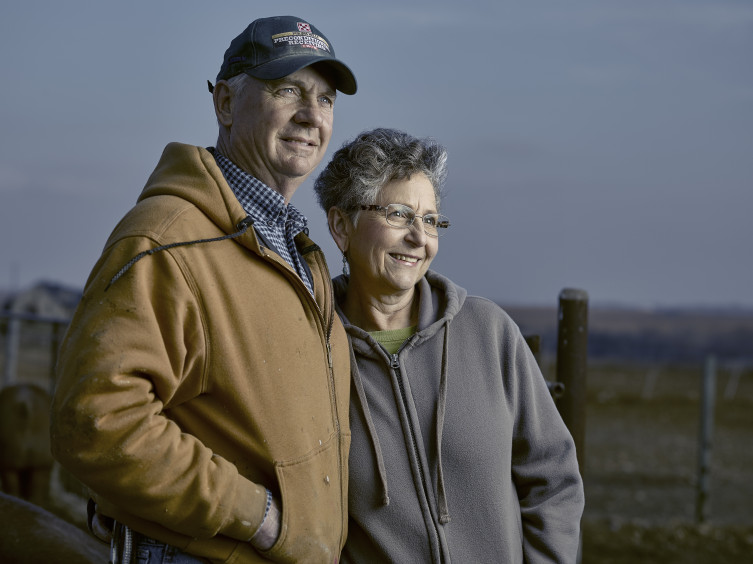 Just as Fred helped Craig get established, Craig is helping a neighbor get started by selling some of his cattle to the young man.
Just as Fred helped Craig get established, Craig is helping a neighbor get started by selling some of his cattle to the young man.
“We feel good about giving his family an opportunity to be successful on the farm,” Craig said. “It’s really important to help the younger generations because it’s not easy and we need good people in food production.”
When asked what advice he would give to young farmers starting out today, his response included everything from work ethic to business to technology.
“First, you must have a passion for your vocation and have the vision of being the best that you can be in your chosen line of work. Don’t settle for average, or good enough, but strive for excellence.
If you are a small producer, you must find a niche to add value above commodity price. Have a plan for adding that value before you act. We live in a high-volume, large-production, low-profit-margin economy.
Be creative and think outside of the box. Don’t be afraid to try new things. You don’t need to do everything the same way everyone else does. You still must be efficient and use new technologies that can be applied to your operation.
If you are raising livestock, you must give your animals every opportunity to be their best and to thrive. Least cost on the surface is not always least cost and most profitable in the end.
Remember that you need to help others to be successful or happy with what you are producing. Help others along the way in life.”
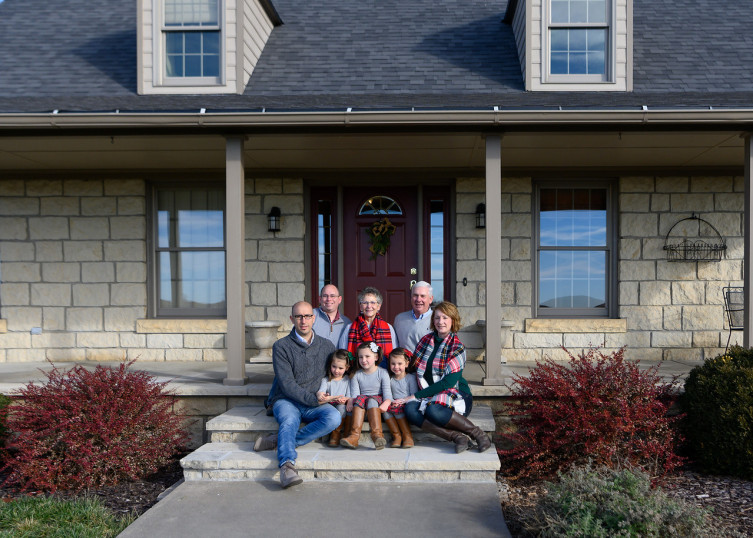 Love is an enduring theme of this couple’s story — love of pigs, love of farming, love of family. As Craig and Amy take stock of where they’ve been, they’re able to look back on a life where they’ve done right by their animals, their customers and each other.
Love is an enduring theme of this couple’s story — love of pigs, love of farming, love of family. As Craig and Amy take stock of where they’ve been, they’re able to look back on a life where they’ve done right by their animals, their customers and each other.
“We’re wealthy in lifestyle,” Craig said. “There have been struggles, but overall it’s been good.”
More About
What’s your favorite food?
Craig: “I’m not sure I have a favorite. Just a simple meal of a baked potato, one of our Good Farms pork chops grilled outside and a salad – that’s pretty hard to beat.”
Amy: “We’re avid gardeners, so probably my favorite foods are anything we raise in the garden — asparagus, lettuce, spinach, potatoes, onions, beans — all types of vegetables.”
What’s your favorite thing about Kansas?
Craig: “Kansas is the only place I’ve ever lived. The people in Kansas have a spirit of independence. They try to be as self-sufficient as they possibly can, yet they’re very helpful, warm, friendly and genuine.”
Amy: “Beyond the people, I think we’re blessed with some of the most beautiful sky you can see in the whole world. You can see stars for miles and we have amazing sunsets and sunrises. We’re blessed with lots of beauty.”

